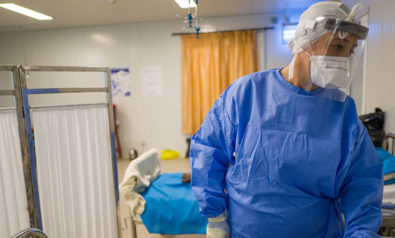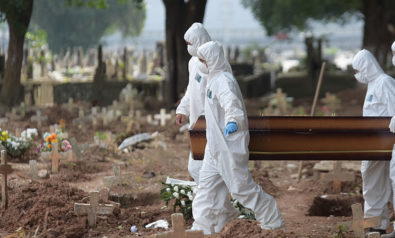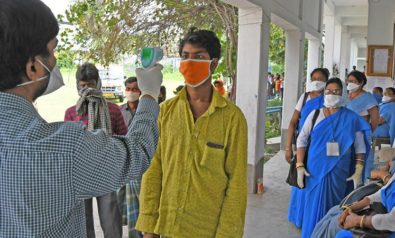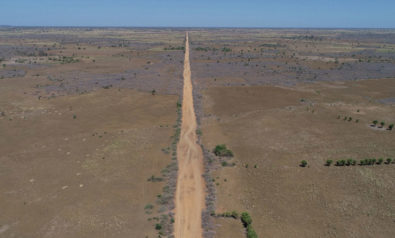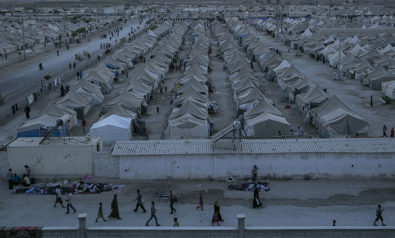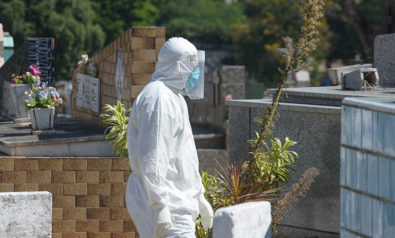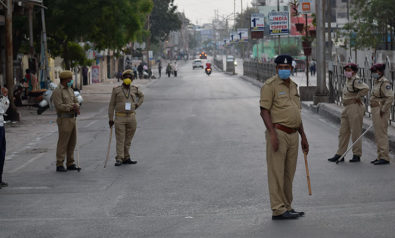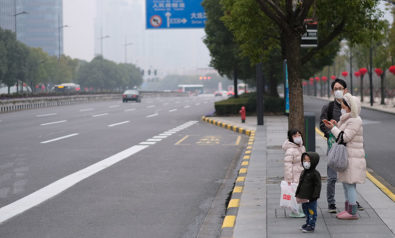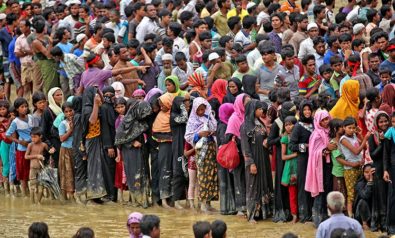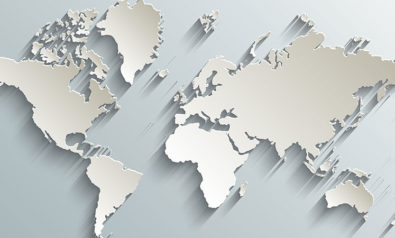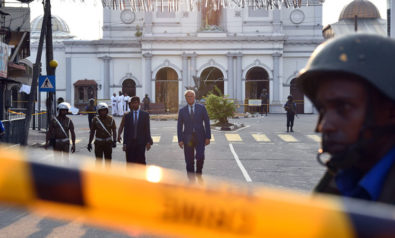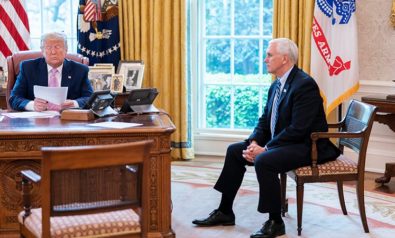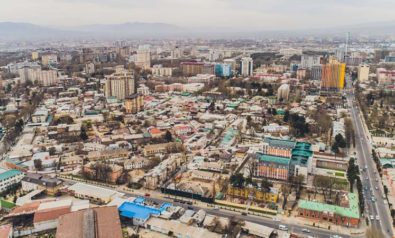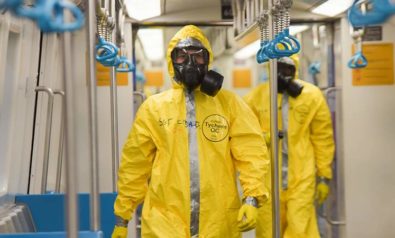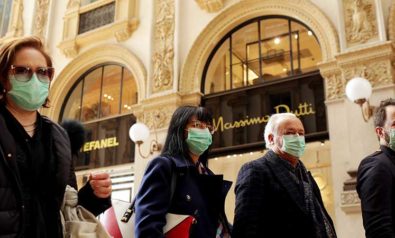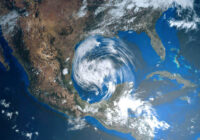Congress is already thinking about how to prevent the next pandemic. See how quickly Cory Booker has teamed up with Lindsey Graham to write a letter calling for a global ban on “wet markets.” The current pandemic is reputed to have originated in a wet market in the Chinese city of Wuhan. So, having identified what they believe to be the root of the problem, these politicians want to eliminate it. In an era of political polarization, even modest bipartisan action is noteworthy — and cause for suspicion.
Booker and Graham could have benefited humanity by reaching across the aisle to do pretty much anything other than co-writing that letter. If they’d done just a little homework, they would have discovered that a wet market is any place that sells perishable goods like meat and produce — as opposed to a dry market where you can get appliances.
Worthier Target
Wet markets are a vital part of life in most of the world. Only some sell the kind of wildlife, dead or alive, that can generate zoonotic diseases like COVID-19. Your local farmers market, for instance, qualifies as a wet market. “Calling for a ban on all wet markets based on the Wuhan wet market, which purportedly sold live wildlife, is like banning all pet ownership based on what goes down in Tiger King,” writes Martha Cheng in The Atlantic.
It also might seem strange for Congress to focus attention on the next pandemic when it has done such a lousy job dealing with the current one. Instead of dictating policies to other countries, the senators should be doing more to ensure that state authorities have testing kits, hospitals have critical supplies, and citizens have the economic wherewithal to survive the ongoing economic downturn.
Xenophobia and Denial: Coronavirus Outbreak in Historical Context
Instead of going far afield to find blame, Booker and Graham could have found a worthier target right down the block. The Trump administration, through its overwhelming incompetence, has turned the United States into an enormous Petri dish of infection. By threatening to restart the economy without either squashing the curve or ensuring that enough testing kits and a tracing system are in place, Trump is threatening to offer up thousands of new hosts for this novel coronavirus.
And by canceling US contributions to the World Health Organization this week, President The-Buck-Stops-Anywhere-But-Here is kneecapping the one global institution that can help save us from the next pandemic. “The WHO failed in its basic duty and must be held accountable,” Trump said by way of explanation. According to that logic, I can cancel my federal tax payments this year.
When I was preparing to write this column about the next pandemic, I discovered that I’d already done so, in an article for the South Korean newspaper, Hankyoreh. In 2014. So, before I return to what the world is doing now to prevent the next COVID-19 outbreak, let’s step back for a moment to September 2014, when the world was confronting the specter of Ebola. That episode contains some important lessons for today.
Back in 2014
“In the South Korean movie ‘The Host,’ the American military pours formaldehyde into the Han River and inadvertently creates a monster. This freak of nature not only goes on a murderous rampage but also is the host of a deadly virus. The movie, inspired by a real-life incident of contamination, is a cautionary tale of the consequences of tampering with the environment.
At first glance, the current Ebola outbreak in West Africa would seem to have nothing to do with such ecological issues. The plague, which has claimed the lives of more than 1,400 people in the countries of Liberia, Sierra Leone, and Guinea, most likely came from an infected fruit bat that bit a toddler in a remote area of eastern Guinea in December 2013. The disease spread quickly from there to urban locations and then across borders. Beginning this summer, it has dominated the headlines. In August, it very nearly overshadowed the summit of African leaders that took place in Washington, DC.
Ebola is a form of hemorrhagic fever. It has a very high mortality rate. There are no known vaccines, though several experimental drugs are currently being tested. Several outbreaks of Ebola have taken place in the past, but mostly in remote areas. Since it first appeared in the Congo region in 1976, Ebola has claimed around 3,000 lives.
For all the media attention surrounding the current outbreak, Ebola is not the most pressing medical issue facing Africa today. Every day, 2,000 African children die from diarrhea. Every minute, an African child dies of malaria. In 2011 alone, 1.2 million Africans died of HIV/AIDS. The Ebola epidemic would have to increase several hundred-fold to match these numbers.
What makes these diseases so tragic in their effects is that effective treatments exist that could bring the mortality rate down to near zero. In the case of diarrhea, that means clean water and sanitation; for malaria, that means mosquito nets and prescription drugs; for HIV/AIDS that means antiretroviral treatments. So far, the money has not been available in sufficient quantities to address these problems.
Diarrhea, malaria, and HIV/AIDS no longer threaten lives at an epidemic level in industrialized countries. Ebola threatens to be something quite different, since it has resisted treatment. The media has covered the Ebola outbreak so extensively in part because of fears that the disease could spread beyond Africa. Books like ‘The Hot Zone’ and movies like ‘Contagion’ have primed people to expect the next major pandemic to emerge any day. But because of the way it spreads — through direct contact with infected bodily fluids — Ebola is not likely to become the next pandemic.
Another reason the media loves to write about Ebola is because it fits comfortably into a neo-colonial view of Africa as a place of barbaric customs such as eating “bush meat.” The consumption of infected chimpanzee or bat meat has been linked in the past to Ebola outbreaks. In this case, however, the outbreak had nothing to do with eating anything. And plenty of people in America eat “bush meat,” which we simply call “game” — venison, boar, and squirrels — and few people consider that to be barbaric.
Of course, Ebola is worrisome because of the speed with which it has spread. One of the reasons that Ebola has spread so quickly is that medical personnel in Africa are already stretched thin dealing with these other diseases.
But the other reason for Ebola’s spread is environmental. The current outbreak of Ebola differs from all previous ones because it spread from a remote area to urban centers. And that happened in part because of deforestation.
The area where this strain of Ebola first appeared — the Western Guinean Lowland Forests — have been cut down by loggers or to make way for farmers. West Africa as a whole has been losing more forests annually — nearly a million hectares — than any other place in the world. Humans are venturing into places that were hitherto largely untouched.
In other words, residents in the region are now more likely than ever to have contact with carriers of Ebola. And they will also have more contact with one another, creating more opportunities for the spread of the disease.
The environmental destruction of Africa’s forests may well produce more outbreaks of the disease. And it might spread to areas with inadequate medical infrastructure. But if we’re going to worry about the next global epidemic, it will more likely come from the flu or SARS, not Ebola.
Still, we should be concerned about how our changing environment affects the spread of disease. Rising temperatures connected to human activity — global warming — has been linked to the spread of malaria and the greater incidence of flu epidemics. We simply don’t know what alteration of the environment will trigger a calamitous pandemic.
At the end of ‘The Host,’ the monster dies. And eventually the current Ebola outbreak will burn out. But if we continue to treat our environment as a place to dump our garbage, the garbage will eventually come back and haunt us. It won’t take the form of a science fiction monster. But Ebola, malaria, and SARS can be just as lethal as anything the movies have dreamed up for us.”
Lessons Moving Forward
That outbreak of Ebola would last for two-and-a-half years and claim over 11,000 deaths in Guinea, Liberia and Sierra Leone. In 2018, meanwhile, 405,000 people died of malaria, 94% of them in Africa. Also that year, 770,000 people died of AIDS-related illnesses. And diarrheal diseases like rotavirus, cholera and shigella kill more people than homicide, suicide, military conflict and terrorism combined: nearly 1.6 million people in 2017 versus 1.35 million deaths from those other causes.
So far, COVID-19 has killed about 146,000 people. In the United States, nearly 29,000 people have died, and the latest predictions are that about 69,000 will perish here by the time the pandemic fades. If that rate of increase holds across the globe — with lower rates in some countries and higher rates in others — then COVID-19 will be responsible for about 340,000 deaths.
That’s a lot of people. And it could be a lot more if this coronavirus becomes entrenched in countries with little medical infrastructure, in overcrowded refugee camps or in places without water for hand-washing. But this estimate of around 340,000 fatalities doesn’t approach the annual death tolls of the other diseases.
Of course, this projected death toll for COVID-19 already takes into account significant countermeasures (social distancing, economic lockdown) to avoid the kind of horrific death tolls associated with past pandemics, like the Spanish flu of 1918 that left as many as 50 million dead.
But why hasn’t the industrialized world funded similar efforts to radically reduce malaria deaths? Could it be because the disease isn’t infectious and doesn’t threaten the “global north”?
Nor has the global response to COVID-19 addressed the root causes of the pandemic. Wet markets, as with bush meat and Ebola, are not the ultimate precipitating factors. UN Environmental Program head Inger Anderson is looking at the same data as Booker and Graham about the source of zoonotic diseases and has come to very different conclusions. “Never before have so many opportunities existed for pathogens to pass from wild and domestic animals to people,” she told The Guardian. “Our continued erosion of wild spaces has brought us uncomfortably close to animals and plants that harbor diseases that can jump to humans.”
It’s not just deforestation. Climate change plays a role too. “As the planet heats up, animals big and small, on land and in the sea, are headed to the poles to get out of the heat,” explains Aaron Bernstein of Harvard’s Center of Climate, Health and the Global Environment. “That means animals are coming into contact with other animals they normally wouldn’t, and that creates an opportunity for pathogens to get into new hosts.”
The scientific community, funded by governments and private foundations, is focused on preventing the next pandemic. The search is on for an antiviral drug that can either mess with the way this coronavirus reproduces or, as Matthew Hutson explains in The New Yorker, alter the cellular mechanisms of the human host to address a suite of viruses. The Pentagon’s research and development arm, DARPA, meanwhile, is researching how to stop a pandemic even further back in the chain of infection by identifying and vaccinating the animal hosts. The idea is to prevent the leap of infectious disease from animal to human in the first place.
These scientific efforts are admirable and necessary. But even stopping pandemics before they make the leap to humans is intervening too late in the process. We will always play catch-up with these wily viruses if we continue our all-out war on the environment. Yes, we need a coronavirus truce in the various military conflicts around the world. More fundamentally, we need a truce in our assault on the planet.
If we don’t pay substantial reparations to make good our relationship with Mother Earth, she will continue to send us these little viral messages: stop being selfish and arrogant, pay attention to the important things in life and, for crying out loud, start listening to your mother.
*[This article was originally published by Foreign Policy in Focus.]
The views expressed in this article are the author’s own and do not necessarily reflect Fair Observer’s editorial policy.
Support Fair Observer
We rely on your support for our independence, diversity and quality.
For more than 10 years, Fair Observer has been free, fair and independent. No billionaire owns us, no advertisers control us. We are a reader-supported nonprofit. Unlike many other publications, we keep our content free for readers regardless of where they live or whether they can afford to pay. We have no paywalls and no ads.
In the post-truth era of fake news, echo chambers and filter bubbles, we publish a plurality of perspectives from around the world. Anyone can publish with us, but everyone goes through a rigorous editorial process. So, you get fact-checked, well-reasoned content instead of noise.
We publish 2,500+ voices from 90+ countries. We also conduct education and training programs
on subjects ranging from digital media and journalism to writing and critical thinking. This
doesn’t come cheap. Servers, editors, trainers and web developers cost
money.
Please consider supporting us on a regular basis as a recurring donor or a
sustaining member.
Will you support FO’s journalism?
We rely on your support for our independence, diversity and quality.



